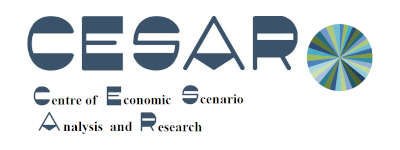Partners
Centre of Economic Scenario Analysis and Research (CESAR)

The Centre of Economic Scenario Analysis and Research, e.U. (CESAR) is a research institute founded in 2018 by Professor Kurt Kratena, who has gained working and research experience as a Senior Economist at the Austrian Institute of Economic Research (WIFO) from 1993 to 2015. CESAR’s has first been founded in Spain in 2015 and moved to Austria in 2018. CESAR has specialised in consulting and policy advice for international institutions (European Commission, IAEA), national and regional governments (Spain, Austria, Andalusia, Madrid). CESAR’s consulting and research has a focus on energy and environmental policies, reforms of the tax system and long-term scenarios for energy and environment. CESAR’s mission is to provide quantitative analysis of the socio-economic and environmental impacts of (a) long-term scenarios, (b) economic and environmental policy, (c) firm strategies, etc. based on economic modelling. CESAR’s modelling approach is broad and systemic as it describes all relevant relationships and ‘feedbacks’ between technological, economic, social and environmental factors. This specialisation sets the base for global modelling of energy and climate policy in an international research network. CESAR will contribute to WP4 “Economic & financial system modelling” and WP8 “Policy analysis and scenarios assessment” in the project.



